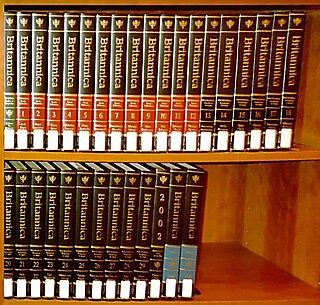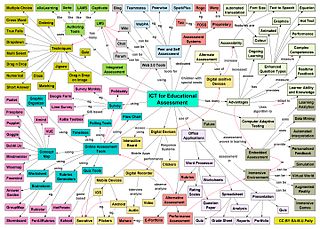| Caryophylliina | |
|---|---|
 | |
| Lophelia pertusa | |
| Scientific classification | |
| Kingdom: | Animalia |
| Phylum: | Cnidaria |
| Class: | Anthozoa |
| Order: | Scleractinia |
| Suborder: | Caryophylliina |
Caryophylliina is a suborder of stony corals, order Scleractinia.
| Caryophylliina | |
|---|---|
 | |
| Lophelia pertusa | |
| Scientific classification | |
| Kingdom: | Animalia |
| Phylum: | Cnidaria |
| Class: | Anthozoa |
| Order: | Scleractinia |
| Suborder: | Caryophylliina |
Caryophylliina is a suborder of stony corals, order Scleractinia.

Communication is "an apparent answer to the painful divisions between self and other, private and public, and inner thought and outer word." As this definition indicates, communication is difficult to define in a consistent manner, because it is commonly used to refer to a wide range of different behaviors, or to limit what can be included in the category of communication. John Peters argues the difficulty of defining communication emerges from the fact that communication is both a universal phenomena, and a specific discipline of institutional academic study.

Computing is any goal-oriented activity requiring, benefiting from, or creating computing machinery. It includes the study and experimentation of algorithmic processes and development of both hardware and software. It has scientific, engineering, mathematical, technological and social aspects. Major computing disciplines include computer engineering, computer science, cybersecurity, data science, information systems, information technology and software engineering.

Computer science is the study of algorithmic processes, computational machines and computation itself. As a discipline, computer science spans a range of topics from theoretical studies of algorithms, computation and information to the practical issues of implementing computational systems in hardware and software.

An encyclopedia, encyclopædia, or encyclopaedia is a reference work or compendium providing summaries of knowledge either from all branches or from a particular field or discipline. Encyclopedias are divided into articles or entries that are often arranged alphabetically by article name and sometimes by thematic categories. Encyclopedia entries are longer and more detailed than those in most dictionaries. Generally speaking, encyclopedia articles focus on factual information concerning the subject named in the article's title; this is unlike dictionary entries, which focus on linguistic information about words, such as their etymology, meaning, pronunciation, use, and grammatical forms.

A library is a collection of materials, books or media that are easily accessible for use and not just for display purposes. It is responsible for housing updated information in order to meet the user's needs on a daily basis. A library provides physical or digital access materials, and may be a physical location or a virtual space, or both. A library's collection can include printed materials and other physical resources in many formats such as DVDs, CDs and Cassette as well as access to information, music or other content held on bibliographic databases.

Mass media refers to a diverse array of media technologies that reach a large audience via mass communication. The technologies through which this communication takes place include a variety of outlets.

The World Wide Web (WWW), commonly known as the Web, is an information system where documents and other web resources are identified by Uniform Resource Locators, which may be interlinked by hyperlinks, and are accessible over the Internet. The resources of the Web are transferred via the Hypertext Transfer Protocol (HTTP), may be accessed by users by a software application called a web browser, and are published by a software application called a web server. The World Wide Web is not synonymous with the Internet, which pre-dated the Web in some form by over two decades and upon the technologies of which the Web is built.

A website is a collection of web pages and related content that is identified by a common domain name and published on at least one web server. Notable examples are wikipedia.org, google.com, and amazon.com.

The Information Age is a historical period that began in the mid-20th century, characterized by a rapid epochal shift from the traditional industry established by the Industrial Revolution to an economy primarily based upon information technology. The onset of the Information Age can be associated with the development of transistor technology.
An information system (IS) is a formal, sociotechnical, organizational system designed to collect, process, store, and distribute information. From a sociotechnical perspective, information systems are composed by four components: task, people, structure, and technology. Information systems can be defined as an integration of components for collection, storage and processing of data of which the data is used to provide information, contribute to knowledge as well as digital products that facilitate decision making.

A QR code is a type of matrix barcode invented in 1994 by the Japanese automotive company Denso Wave. A barcode is a machine-readable optical label that contains information about the item to which it is attached. In practice, QR codes often contain data for a locator, identifier, or tracker that points to a website or application. A QR code uses four standardized encoding modes to store data efficiently; extensions may also be used.

Online shopping is a form of electronic commerce which allows consumers to directly buy goods or services from a seller over the Internet using a web browser or a mobile app. Consumers find a product of interest by visiting the website of the retailer directly or by searching among alternative vendors using a shopping search engine, which displays the same product's availability and pricing at different e-retailers. As of 2020, customers can shop online using a range of different computers and devices, including desktop computers, laptops, tablet computers and smartphones.

Information and communications technology (ICT) is an extensional term for information technology (IT) that stresses the role of unified communications and the integration of telecommunications and computers, as well as necessary enterprise software, middleware, storage and audiovisual, that enable users to access, store, transmit, understand and manipulate information.
Personal data, also known as personal information or personally identifiable information (PII), is any information related to an identifiable person.

IMDb is an online database of information related to films, television programs, home videos, video games, and streaming content online – including cast, production crew and personal biographies, plot summaries, trivia, ratings, and fan and critical reviews. An additional fan feature, message boards, was abandoned in February 2017. Originally a fan-operated website, the database is now owned and operated by IMDb.com, Inc., a subsidiary of Amazon.

A search engine is a software system that is designed to carry out web searches. They search the World Wide Web in a systematic way for particular information specified in a textual web search query. The search results are generally presented in a line of results, often referred to as search engine results pages (SERPs) The information may be a mix of links to web pages, images, videos, infographics, articles, research papers, and other types of files. Some search engines also mine data available in databases or open directories. Unlike web directories, which are maintained only by human editors, search engines also maintain real-time information by running an algorithm on a web crawler. Internet content that is not capable of being searched by a web search engine is generally described as the deep web.
HTTP cookies are small blocks of data created by a web server while a user is browsing a website and placed on the user's computer or other device by the user’s web browser. Cookies are placed on the device used to access a website, and more than one cookie may be placed on a user’s device during a session.

Data are individual facts, statistics, or items of information, often numeric, that are collected through observation. In a more technical sense, data are a set of values of qualitative or quantitative variables about one or more persons or objects, while a datum is a single value of a single variable.

Information, in a general sense, is processed, organised and structured data. It provides context for data and enables decision making. For example, a single customer’s sale at a restaurant is data – this becomes information when the business is able to identify the most popular or least popular dish.

Information technology (IT) is the use of computers to create, process, store, and exchange all kinds of electronic data and information. IT is typically used within the context of business operations as opposed to personal or entertainment technologies. IT is considered to be a subset of information and communications technology (ICT). An information technology system is generally an information system, a communications system, or, more specifically speaking, a computer system – including all hardware, software, and peripheral equipment – operated by a limited group of IT users.